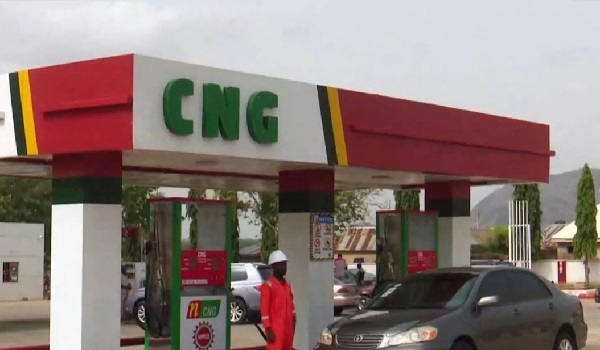The Nigerian Midstream and Downstream Petroleum Regulatory Authority (NMDPRA) announced plans for petrol stations to introduce points of sale for Compressed Natural Gas (CNG).
The agency’s Chief Executive, Farouk Ahmed, shared the news following a meeting with major petroleum product suppliers in Abuja, aligning with President Bola Ahmed Tinubu’s CNG initiative to offer a cheaper energy alternative.
Ahmed emphasised the proposal’s aim to integrate CNG facilities into petrol stations as a new regulatory requirement for new applications. “We will require that CNG add-ons be included at petrol stations. This will ensure that CNG is available to consumers at a competitive cost,” he stated.
The NMDPRA, collaborating with the Nigerian Upstream Petroleum Regulatory Commission (NUPRC), Nigerian National Petroleum Company Limited (NNPCL), and the Gas Aggregation Company of Nigeria (GACN), aims to make CNG widely accessible and affordable. Ahmed highlighted that this initiative would reduce reliance on imported petrol by shifting some energy requirements to CNG.
Acknowledging the high initial investment costs, Ahmed explained that the implementation would be phased. “By doing so, we will reduce the need for diesel-powered generators by utilising solar options,” he added.
The NMDPRA is currently engaging with stakeholders to finalise the regulation, which will be rolled out once agreements are reached. Ahmed also noted that President Tinubu has directed all government Ministries, Departments, and Agencies (MDAs) to prioritise CNG for their mobility needs.
Additionally, petrol stations will soon be required to install trackers to monitor actual consumption volumes, moving away from reliance on trucking data. “This will give us a more accurate estimate of national consumption,” Ahmed explained.
The meeting also addressed concerns about the ability to import petroleum products, especially Automotive Gas Oil (AGO) and Aviation Turbine Kerosene (ATK), in light of the new Dangote Refinery. Ahmed clarified that the refinery would set its prices based on market forces, and marketers have the freedom to choose their suppliers. Ensuring an adequate supply to bridge any gaps remains NMDPRA’s primary concern.
Matrix Energy Limited’s CEO, Abdulkabir Adisa Ali, affirmed marketers’ alignment with the government’s decisions, urging Nigerians to be patient with the new policies. He highlighted the proactive approach of NMDPRA in addressing industry challenges and emphasised the importance of putting the country’s needs first, despite high foreign exchange costs.
“The most important thing is to have a stable country for business operations. NMDPRA’s proactive measures will significantly benefit the industry,” Ali concluded.



